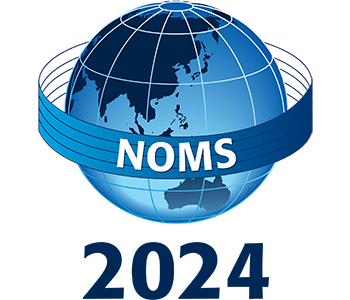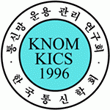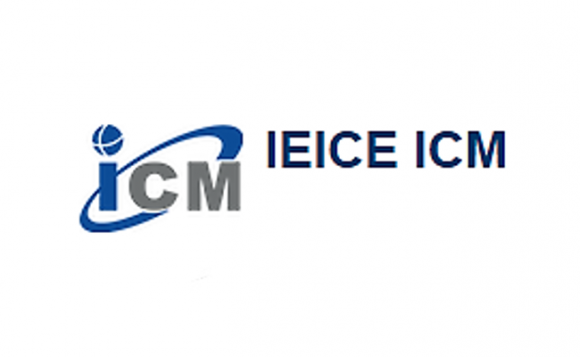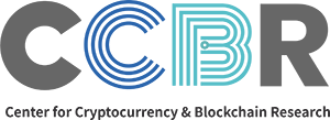Website: https://anms-conf.github.io/
Call for Papers
Beyond 5G and 6G wireless systems are expected to handle significantly increased data rates, provide ultra-low latency and enhanced connectivity to massive numbers of devices, and bring improvements in network energy efficiency. This new generation of networking systems aims to be fully autonomous networks (AN) with management capabilities, such as self-configuration, self-healing, self-optimizing, and self-evolving aspects, that today’s networks do not support as their management is largely manual with some automated assistance.
This workshop focuses on novel research in algorithms, architectures, approaches, and applications in the autonomous management of 5G and 6G systems. We encourage original paper submissions from academia and industry presenting work in progress or novel research on the most recent advances, frameworks, models, and approaches for management of autonomous networks using enabling techniques, such as AI/ML, virtualisation, and blockchain. We are also interested in articles revising the state-of-the-art of this topic, showing recent major advances and discoveries, significant gaps in the research, current standardization status, and new future issues.
We invite submissions of original research papers, as well as vision papers and experience reports.
Important Dates
- Submission deadline: Feb. 2nd, 2024 (Extended)
- Notification to authors: March 1st, 2024
- Camera-ready deadline: March 15th, 2024
- Workshop: May 6th - 10th, 2024 (Program)
All times in Anywhere on Earth (AoE) timezone.
Topics
The aim of the workshop is to share new findings, exchange ideas and discuss research challenges on the following topics (not an exhaustive list):
- Self-* techniques of network management in AN
- Network resource and service automation and orchestration in AN
- Network state prediction and forecasting for AN
- Network monitoring systems (traffic recognition, anomaly detection, etc.) for AN
- Intelligent network service provisioning and assurance in AN
- Methods and algorithms for resource allocation and usage in AN
- AN management in resource-constrained environments
- Adaptation and customization of AI for constrained devices (e.g. edge) for control in AN
- Efficient resource allocation and scheduling (e.g., spectrum, storage, compute) in AN
- Tools, simulators, or digital twins for planning, validation, and what-if analysis in AN
- Architectures and frameworks to integrate AI natively in AN
- Generation and use of knowledge-graphs for AN use cases
- Taxonomies of explainability of AI decisions for AN use cases
- The role and usefulness of LLM’s in AN and intent
- Novel contributions on low carbon and sustainability in AN
- Blockchain and distributed ledger technology for AN management and trust
- Security provision and its integration with AN
- End-to-end management of AN
- Decentralised and distributed AI for management and operation in AN
- Autonomous management of access and interaction for the radio spectrum
- Autonomous management via AI-native approaches and use cases across the network
Author Information
Paper submissions must present original, unpublished research or experiences. Only original papers that have not been published or submitted for publication elsewhere can be submitted. Each submission must be written in English, accompanied by a 75 to 200 words abstract that clearly outlines the scope and contributions of the paper.
Maximum paper lengths, including title, abstract, all figures, tables, and references, are:
- 6 pages for regular papers,
- 4 pages for short papers describing work in progress.
Submissions must be in IEEE 2-column style and follow the style guide. Self-plagiarized papers will be rejected without further review - see IEEE’s policies regarding plagiarism and self-plagiarism are available here.
Authors should submit their papers via JEMS: submission link
Extended versions of the best paper(s) may be considered for fast-tracking to the Journal of Network and Systems Management IF: 2.026 (to be confirmed)
Program
Date: 10th, May
Room: Acacia
| 9:00 – 9:15 | Welcome | |
|---|---|---|
| 9:15 – 10:30 Technical Session1 - ANMS | ||
| 9:15 – 10:30 | Enabling 6G Campus Networks Intelligent Control with Digital Twin: A case study | Zied Ennaceur,Mounir Bensalem,Cao Vien Phung,André Costa Drummond,Admela Jukan |
| A Design and Development of Operator for Logical Kubernetes Cluster over Distributed Clouds | Thanh-Nguyen Nguyen,Jangwon Lee,Younghan Kim | |
| Policy Compression for Low-Power Intelligent Scaling in Software-Based Network Architectures | Thomas Avé , Paola Soto-Arenas , Miguel Camelo, Tom De Schepper , Kevin Mets | |
| 10:30 – 11:00 | Coffee Time | |
| 11:00 – 12:30 | Technical Session 2 - TNT | |
| 12:30 – 14:00 | Lunch Time | |
| 14:00 – 14:45 | Technical Session 3 - QoDaNet | |
| 14:45 – 15:30 Technical Session4 - Demos | ||
| 14:45 – 15:30 | Demo 1: DigSiNet: Using Multiple Digital Twins to Provide Rhythmic Network Consistency |
|
| 15:30 – 16:00 | Coffee break | |
| 16:00 – 16:45 Technical Session5 - Pannel | ||
| 16:00 – 16:45 | Panel: Trends in Autonomous Networks Management, Network Digital Twins, and Data |
|
| 16:45 – 17:15 | Q&A and Open Discussion | |
| 17:15 – | Closing Remarks | |














